Martin Luther King: 7 speeches that changed the world in the 20th Century
- Published
- comments
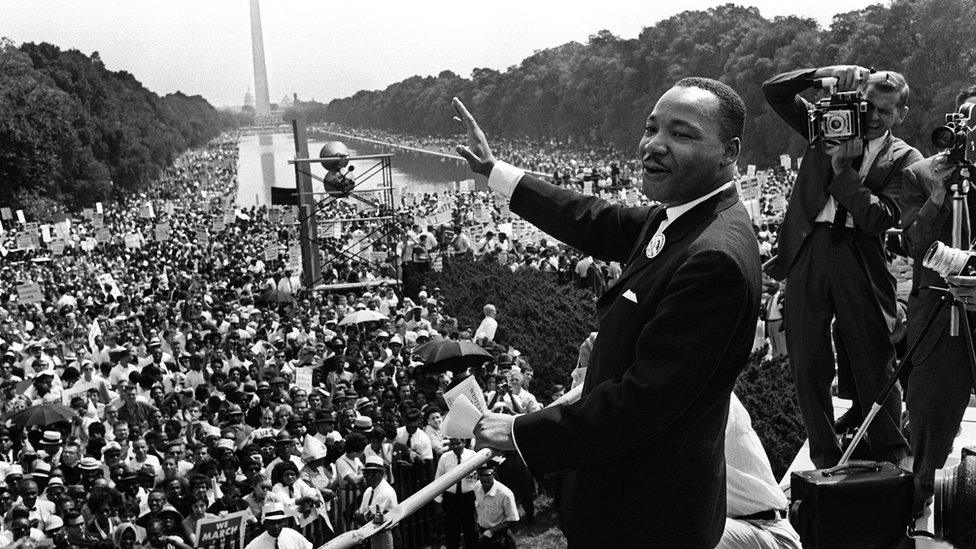
US civil rights leader Martin Luther King waving from the steps of the Lincoln Memorial to supporters on the Mall in Washington, DC in 1963
Ninety years ago, on 15 January 1929, American civil rights leader Martin Luther King was born in Atlanta, Georgia.
His 'I Have A Dream' speech described a vision of racial equality in America that inspired millions.
To celebrate his birthday, Newsround looks at seven speeches -by great leaders, including King, who have inspired us over the years - and changed our world for the better.
I Have A Dream - Martin Luther King
WATCH: Why you should know about Martin Luther King
On 28 August 1963, civil rights campaigner Martin Luther King marched with thousands of people to America's capital, Washington DC.
At the time black people were treated as second class citizens and King wanted that to change.
In some parts of the country they weren't allowed to use the same schools, diners, cinemas or even public toilets as white people.
On buses, black and white Americans sat separately and black people had even been arrested for not giving up their seat for a white person.
I have a dream that my four children will one day live in a nation where they will not be judged by the colour of their skin but by the content of their character.
Although King's famous speech was 17 minutes long, it is best remembered for the final few minutes when he pushed aside his papers and in a soaring voice painted an inspirational picture of a future America.
He declared that America could only became a great nation if freedom applied to "all of God's children".
More than 50 years on, America has had its first black president, Barack Obama, but race is still a sensitive topic and some Americans question whether things have truly changed.
We Shall Fight On The Beaches - Winston Churchill
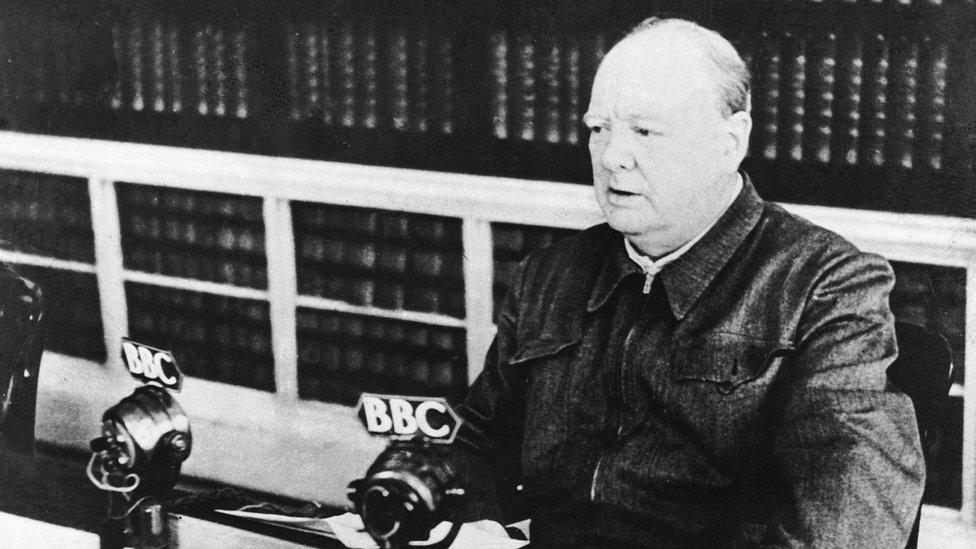
Winston Churchill was British prime minister from 1940-1945 and again between 1951-1955.
He is best remembered for successfully leading Britain through World War Two.
He was famous for his inspiring speeches, and for his refusal to give in, even when things were going badly.
Many people consider him the greatest Briton of all time and he's almost certainly the most famous British prime minister.
…we shall defend our Island, whatever the cost may be, we shall fight on the beaches, we shall fight on the landing grounds, we shall fight in the fields and in the streets, we shall fight in the hills; we shall never surrender.
From 27 May to 4 June 1940, some 226,000 British and 110,000 French troops were rescued from the channel port of Dunkirk, by a fleet ranging from small civilian pleasure boats to Navy destroyers.
In a speech on 4 June, Churchill's honesty about Dunkirk being a massive defeat for Britain and its allies won his listeners' trust, but he also used his speech to inspire the British people to come to terms with their situation and fight on.
By telling the British people how heroic they were going to be, Churchill gave them no choice but to play out their parts in the script he had written, or be shamed.
I Am The First Accused - Nelson Mandela
WATCH: A look back at Nelson Mandela's life (December 2013)
When Nelson Mandela was a young man, white and black people in South Africa lived separate lives under a system called apartheid.
White people, who were a small part of the population, were in charge of the country.
It was illegal for black people to use the same schools, hospitals, and even beaches as white people. Conditions in whites-only schools and hospitals were much better.
Nelson Mandela made this speech in court in 1964, just before he was sent to prison.
I have cherished the ideal of a democratic and free society in which all persons live together in harmony and with equal opportunities. "It is an ideal which I hope to live for and to achieve. But if needs be, it is an ideal for which I am prepared to die."
While Mandela was in prison photos of him were banned and it was even illegal to quote him in public.
But people from all over the world campaigned for his release. Songs were written and big concerts were held in protest.
He became his country's first black president in 1994 after spending 27 years in jail and is held up as one of the greatest leaders the world has ever seen.
Women's Rights Are Human Rights - Hillary Clinton
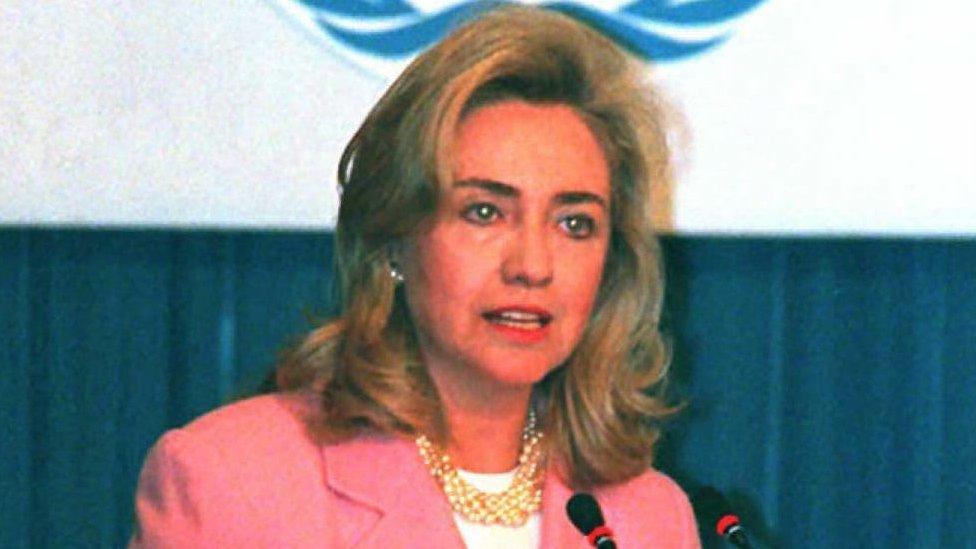
One woman whose name you will probably have heard many times over the last few years is Hillary Clinton.
That's because Mrs Clinton made history back in July 2016 when she became the first woman from one of America's two main political parties to be chosen to run for the job of president. She was representing the Democrats.
While she eventually lost the election to Republican candidate Donald Trump, Mrs Clinton inspired millions of girls and women all over the world.
But before all of this, Hillary Clinton made a groundbreaking speech in 1995 in Beijing, China, at the United Nations Fourth World Conference on Women.
If there is one message that echoes forth from this conference, let it be that human rights are women's rights and women's rights are human rights once and for all. Let us not forget that among those rights are the right to speak freely — and the right to be heard.
Speaking as the First Lady and wife of then US President Bill Clinton, she set down a challenge to the world: to treat women's rights as human rights.
Mrs Clinton went against both US government advisors and Chinese pressure to change her speech.
Instead, she delivered a passionate attack against policies abusing 'unheard' women around the globe.
In Beijing, Hillary Clinton addressed an issue which would help define her future political career and placed women's rights firmly on the global agenda.
Freedom Or Death - Emmeline Pankhurst
WATCH: Find out more about Emmeline Pankhurst
Women haven't always had the right to vote in the UK. There were many people who campaigned extremely hard to change this.
Two groups in particular are well known for leading the way in the fight to get votes for women - the Suffragists and the Suffragettes.
Emmeline Pankhurst led an army of women onto the streets of Britain as the leader of the Suffragettes.
Her 'Freedom or Death' speech in 1913, considered her most famous, happened in Hartford on a fundraising tour of the United States.
You have to make more noise than anybody else, you have to make yourself more obtrusive than anybody else, you have to fill all the papers more than anybody else, in fact you have to be there all the time and see that they do not snow you under, if you are really going to get your reform realised.
In her speech, she explained why the movement had turned to more aggressive and violent means to achieve its goal - to grant women the right to vote.
When World War One broke out in 1914, Emmeline Pankhurst recognised that she should help with the war effort, and she encouraged other Suffragettes to do the same.
While the men were away fighting in the war, many women like Emmeline took on jobs that men would traditionally do. They earned lots of respect doing this and it showed just how much women contributed to society - and, therefore, deserved the vote.
In 1918, a law was passed which allowed certain women the right to vote.
Inauguration Speech - John F. Kennedy
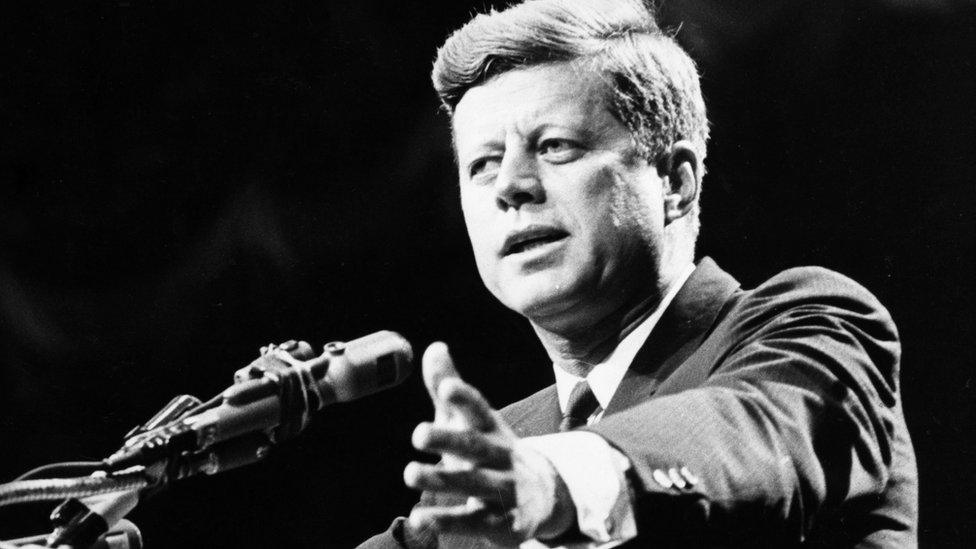
On 20 January 1961 John Fitzgerald Kennedy was sworn in as the 35th President of the United States of America.
The 43-year-old senator from Massachusetts had defeated Vice President Richard Nixon in the previous year's election.
Kennedy had run for president on a pledge to get the United States 'moving again'.
Like other great communicators - including Winston Churchill before him and Ronald Reagan and Barack Obama since then - he was someone who took word-craft very seriously indeed.
I do not believe that any of us would exchange places with any other people or any other generation. The energy, the faith, the devotion which we bring to this endeavour will light our country and all who serve it — and the glow from that fire can truly light the world. And so, my fellow Americans: ask not what your country can do for you — ask what you can do for your country.
In his first speech to thousands gathered outside the Capitol in Washington DC, President Kennedy urged his fellow Americans: "Ask not what your country can do for you, ask what you can do for your country."
Drafted by talented speech writers such as Theodore 'Ted' Sorensen, these presidential remarks helped to set a mood of national optimism during the early 1960s.
Only after Kennedy's murder in 1963, and the full awareness of the problems of Vietnam and civil rights, did questions arise about whether Kennedy's language outshone his accomplishments in the White House.
Inauguration Speech - Franklin D Roosevelt
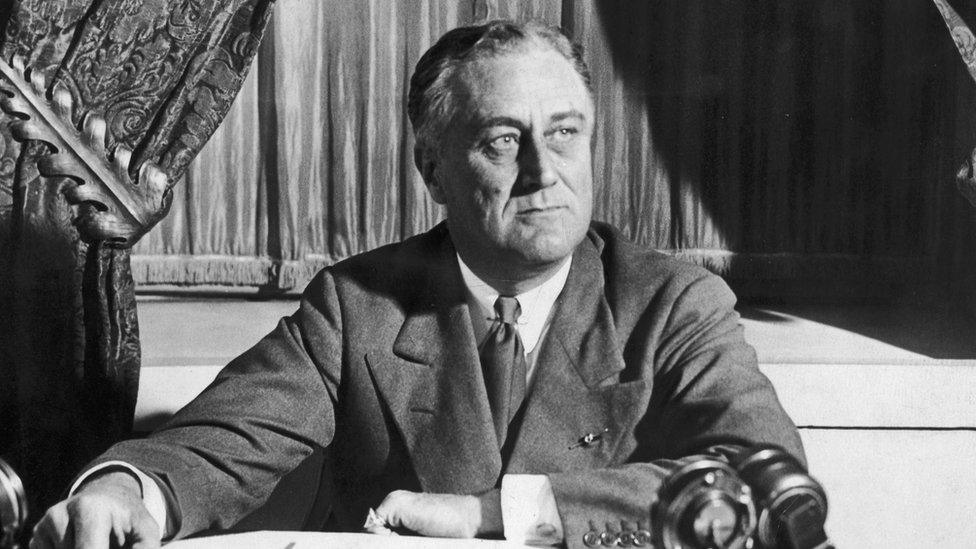
The US Presidential election campaign of November 1932 took place against the backdrop of the most severe economic crisis in American history.
The Democratic candidate for the top job, Franklin D Roosevelt promised, "A new deal for the American people."
Following a huge election victory, Roosevelt faced the enormous task of restoring confidence in a shattered economy.
...the only thing we have to fear is...fear itself — nameless, unreasoning, unjustified terror which paralyzes needed efforts to convert retreat into advance... I assume unhesitatingly the leadership of this great army of our people dedicated to a disciplined attack on our common problems.
At the inauguration ceremony - when Roosevelt officially became president - in March 1933, he declared war on the country's economic problems and tried to calm a panicked America.
That month the country recorded over 15 million unemployed and banks across America were closing thanks to the 1929 stock market crash.
So Roosevelt brought in a 100-day plan, eventually called the New Deal.
It turned the economy around and transformed America into a superpower.
